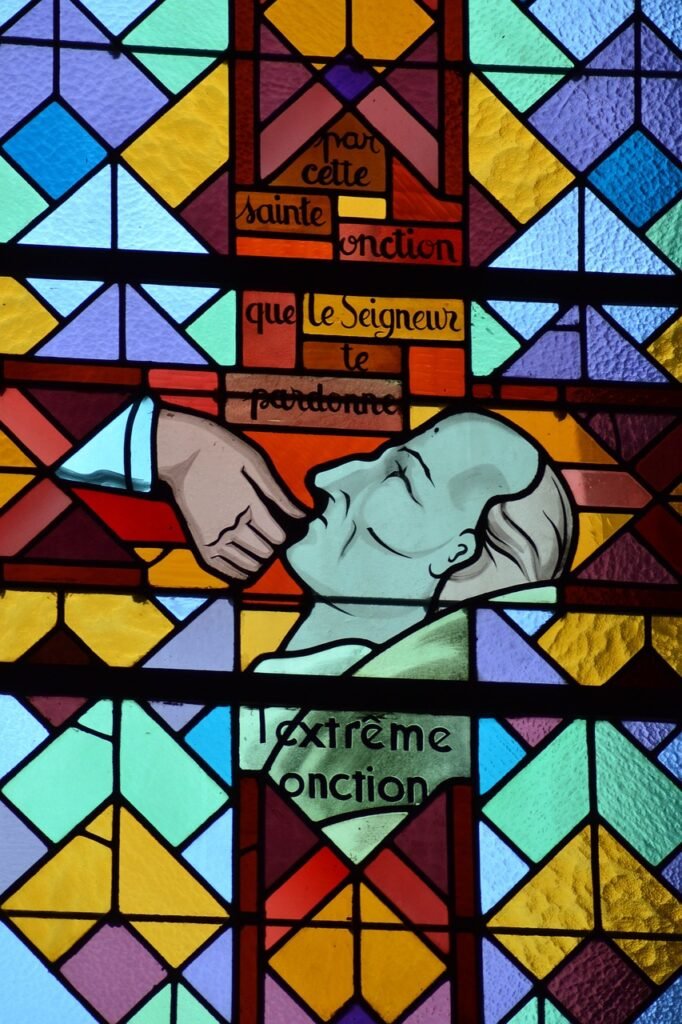ANOINTING OF THE SICK/LAST RITES
From the early days of the Church, ministers have been encouraged to lay hands on and anoint the sick. The purpose of this anointing is to bring healing, which is often spiritual but, if God wills, can also be physical. It is important to understand that healing should not be confused with curing.
Previously, the Anointing of the Sick was typically reserved for those in imminent danger of death. However, this is no longer the case. Today, the sacrament can be celebrated as often as the sick person finds it helpful. While it is administered to those with life-threatening conditions, it should not be postponed until the individual is unable to actively participate. In fact, it can be given at the first diagnosis and repeated as needed, especially at significant stages of the illness.
To ensure the sacrament's effect is peaceful and comforting, it is best not to wait until a crisis point. To arrange for the Anointing of the Sick, please contact the parish office.
The Last Rites
In Catholic tradition, "Last Rites" refers to the set of sacraments and prayers administered to individuals who are nearing the end of their life. Traditionally, this term encompasses three main elements:
2. Reconciliation (Confession): If the person is conscious and able to confess their sins, the sacrament of Reconciliation may be offered. This provides the opportunity for spiritual cleansing and forgiveness before death.
3. Viaticum: This is the reception of the Eucharist as "food for the journey" for those who are dying. It is the last time the person receives the Body and Blood of Christ and is a crucial part of the "Last Rites."
When these sacraments are administered together, they are sometimes collectively referred to as "Last Rites." The term emphasizes the importance of these final spiritual preparations and the Church’s support for the dying person as they approach the end of their earthly life.
There is often confusion about the term "The Last Rites," which is sometimes mistakenly used to refer to Anointing of the Sick. In reality, "The Last Rites" is not the same as Anointing of the Sick.
For those nearing death, the proper celebration is Viaticum, which is the final reception of the Body and Blood of Christ. This special Eucharistic service is celebrated near the time of death and may be administered by a priest, deacon, or trained layperson. If a priest administers Viaticum, an opportunity for Reconciliation (confession) may also be offered if desired by the patient.
Viaticum can be administered alongside Anointing of the Sick if the patient has not been recently anointed. When both rites are celebrated together, they are sometimes referred to as "Last Rites," though this is not the precise term.
When requesting ministry for someone who is gravely ill, please provide details about the situation. This will help us determine whether Anointing of the Sick, Reconciliation, Viaticum, or a combination of these sacraments is needed. To ensure a proper celebration, please do not wait until the last moment; contact us in advance.

